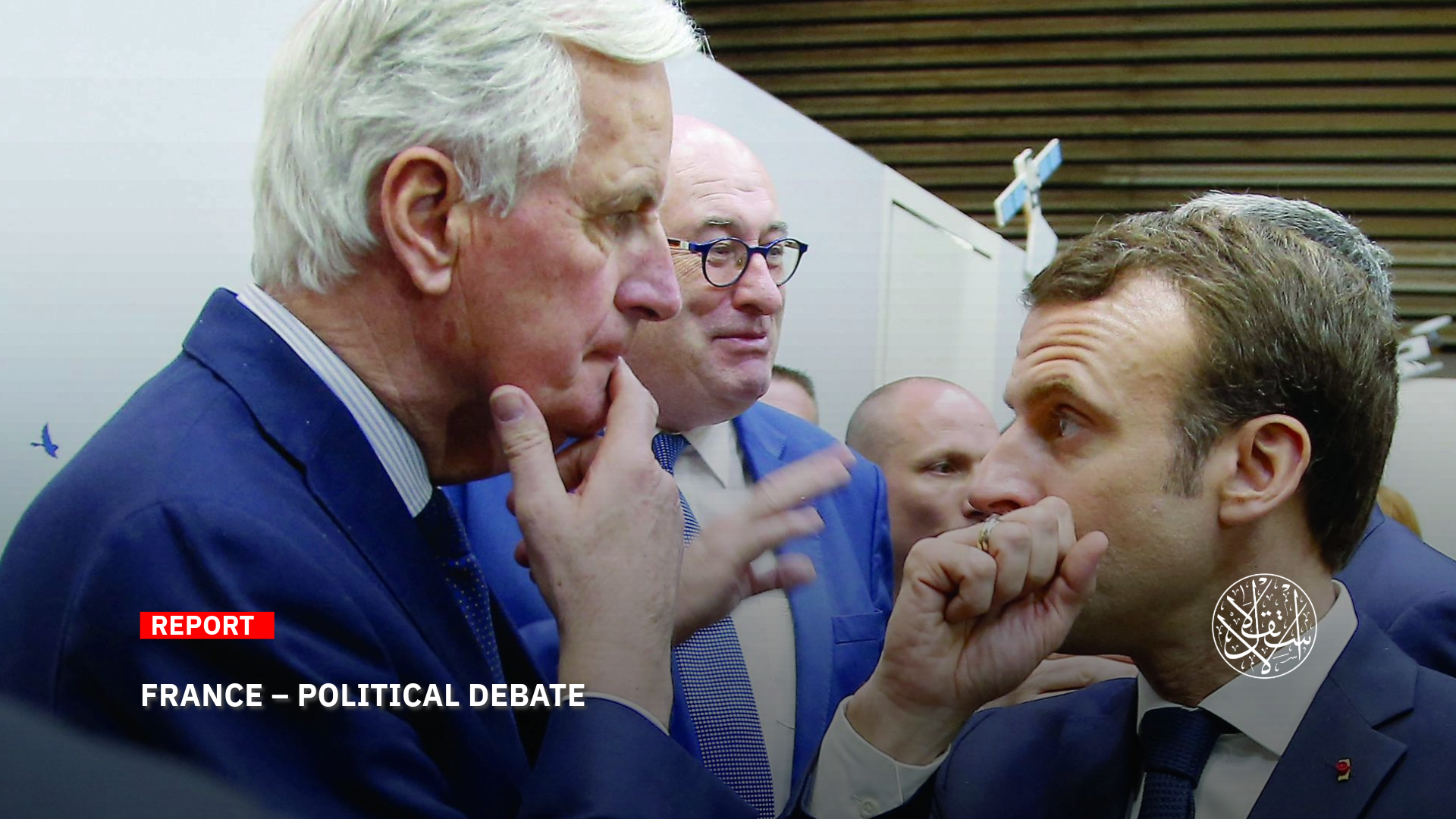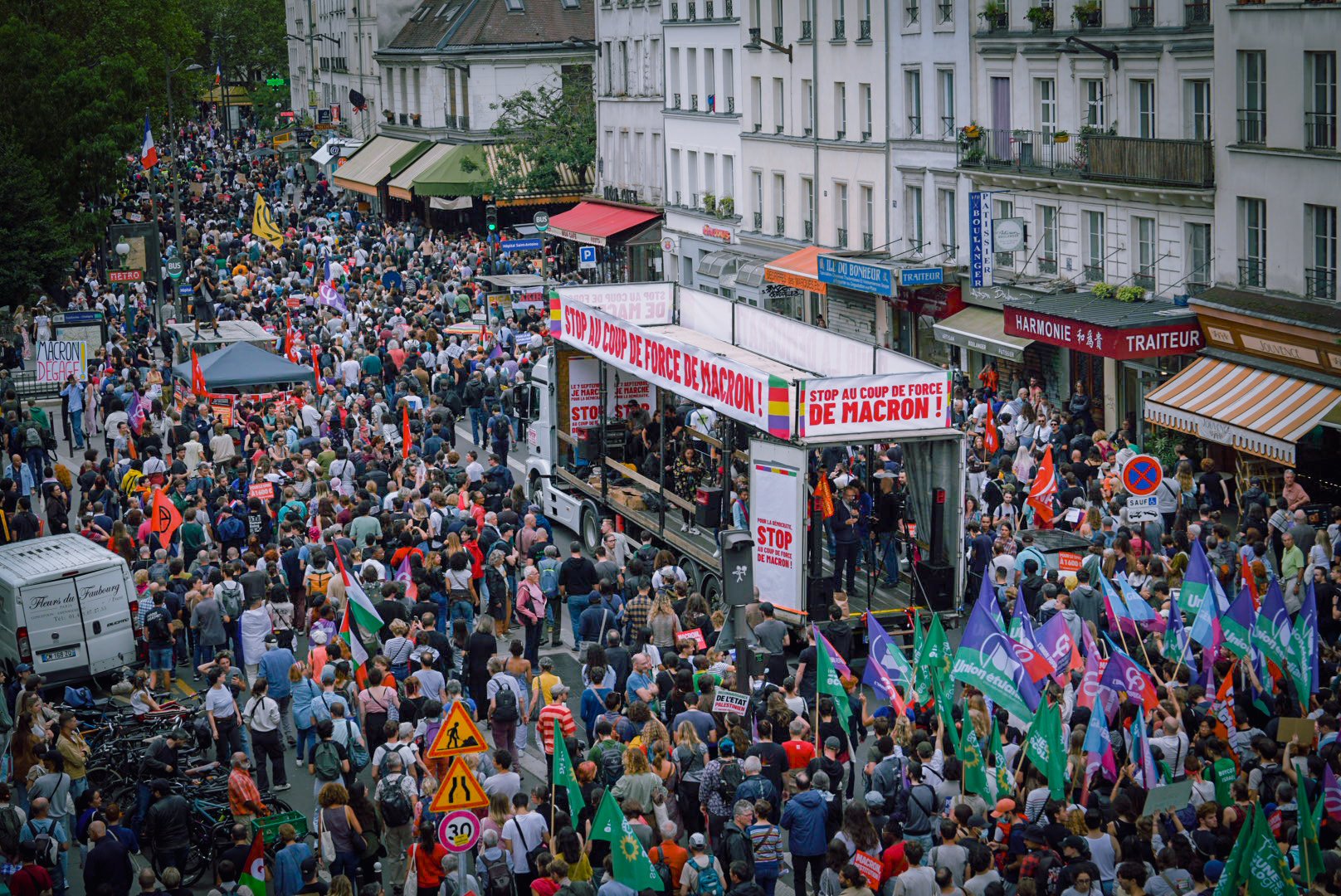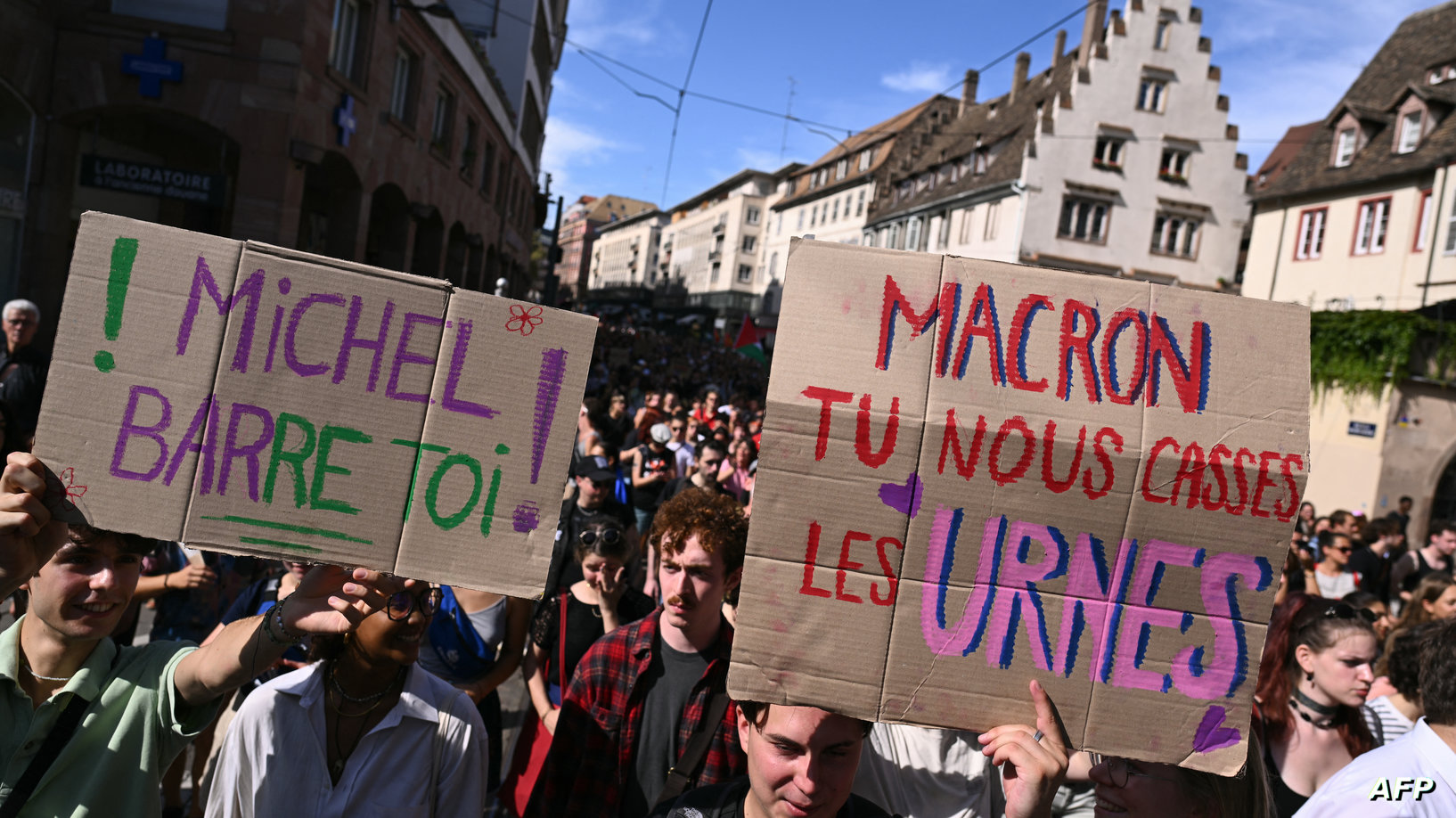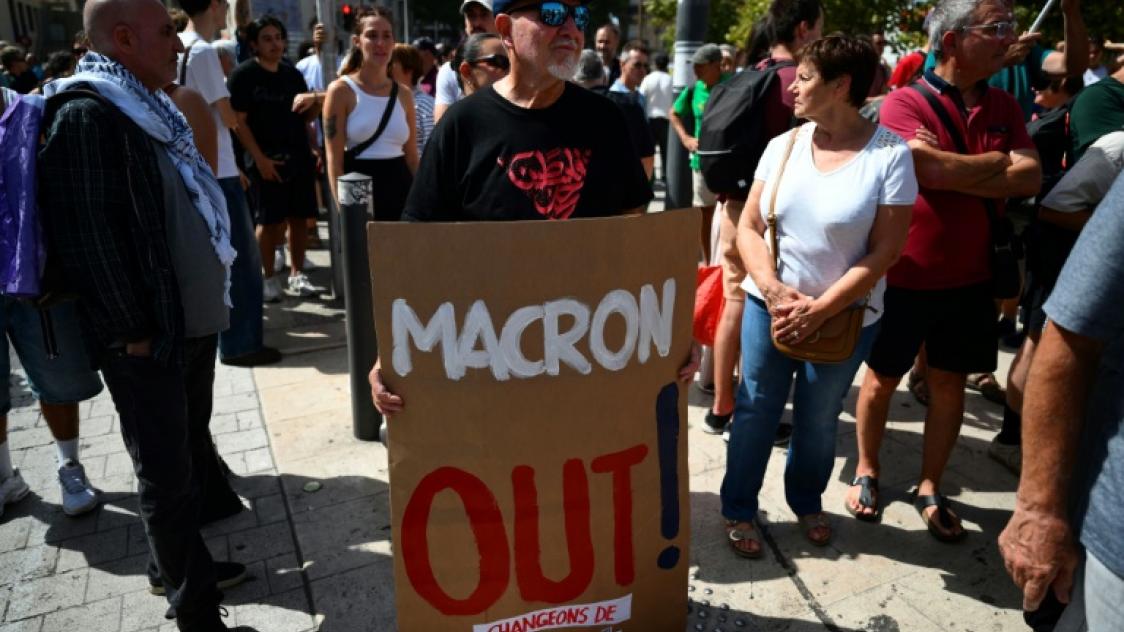How Macron Gave the Far-Right Powers That Could Hinder the New Prime Minister’s Mission

“The leftist alliance has decided against supporting a Barnier government.”
The series of consultations launched by French President Emmanuel Macron with the main political forces finally ended with the announcement of Michel Barnier as Prime Minister.
France has thus gone from its youngest prime minister, Gabriel Attal (34), to its oldest, with Republican party member Michel Barnier (73).
He has been out of the French political arena since failing to secure the support of his party to challenge Macron in the 2022 presidential election.
As a moderate and experienced centre-right politician, the new prime minister’s reputation gives him the chance to form a government with enough support among right-wing parties to be able to overcome any no-confidence motion in the National Assembly.
On its part, the National Rally has given its tacit approval to Barnier, stating that there are a number of conditions for it not to support a no-confidence vote, making it the party actually responsible for forming a new government.
A Difficult Task
On September 5, Emmanuel Macron appointed Michel Barnier as prime minister, seeking to move forward after the snap elections held last July, which resulted in a divided National Assembly lacking an absolute majority.
But analysts say the country is heading into a period of instability, with centre-right Michel Barnier seen as politically weak and dependent on the support of Marine Le Pen’s anti-EU, anti-immigration National Rally.
The new prime minister is being rejected by the New Popular Front (NFP), the largest bloc in the National Assembly, although it lacks an absolute majority.
On September 7, tens of thousands of supporters of the left-wing Front demonstrated across France to protest Barnier’s appointment and denounce Macron’s seizure of power.
Leftists, led by France Unbowed (LFI), accuse Macron of denying democracy and stealing the election.
A recent poll by Elabe, a French research and consulting firm, found that 74% of French people believe Macron ignored the election results, while 55% believe he stole them.
Barnier’s party came fourth in the last parliamentary elections, winning only 44 seats.
Hence, the attack by the left in all its formations on Barnier, who was accused of lacking the legitimacy provided by the ballot box.
In turn, Barnier said, in his first interview in his new position, that his government, which lacks a clear majority in the National Assembly, will include conservative politicians and members of Macron's centrist camp, and that he hopes to include some members of the left.
The conservative politician faces an uphill task in trying to push through reforms and pass the country's 2025 budget, at a time when France is under pressure from the European Commission and bond markets to reduce the budget deficit.
In a sign he would take a rightward shift on some issues, Barnier said he would pursue tougher policies to curb immigration.
The NFP and the far-right National Rally have a majority, and both may be able to oust the prime minister through a vote of no confidence if they decide to cooperate.
According to a senior source, the Elysee believes that Barnier will not immediately withdraw his confidence, unlike Xavier Bertrand and Bernard Cazeneuve, the right-wing and left-wing candidates, and that he can even hold out for several months.
The National Assembly is currently divided between three blocs: the NFP coalition, which holds more than 190 seats, followed by the presidential camp, which won 160 seats, and then the far-right National Rally, which won 140 seats.
As a result, no bloc has obtained an absolute majority of 289 seats in the 577-seat Assembly.

Kingmaker
However, the fatal blow to the new French Prime Minister Michel Barnier could come from the far-right National Rally.
The pro-Macron coalition and the conservative Republican Right group likely to back the new prime minister have only 213 seats, well below the 289 needed for a majority.
Barnier knows that his nomination to the new post would not have happened if Marine Le Pen had not promised not to vote in favor of no-confidence in him from the beginning.
As a result, the left-wing parties, many analysts and the media have not hesitated to portray him as a hostage in Le Pen’s hands.
“Today, we have a prime minister who is completely dependent on the National Rally,” said Lucie Castets, the prime ministerial pick of the leftist alliance.
“In so doing, the president has put himself in cohabitation with the National Rally,” she said, referring to the term used in France when the president governs with a prime minister from a rival party.
On his part, the head of the National Rally, Jordan Bardella, said: “We reserve all political means of action if this is not the case in the coming weeks,” in an explicit threat to withdraw support from Barnier if the party’s concerns on immigration, security, health care and economic issues are not met.
In turn, Marine Le Pen indicated that she would closely monitor Barnier’s every move, warning that if the French were forgotten or mistreated again in the coming weeks, her party would not hesitate to withdraw confidence from Barnier’s government.
Speaking to reporters, Le Pen (56 years old) said that she expected France to hold new legislative elections within a year.
“It's now the far right that makes the kings or queens,” Socialist Party chief Olivier Faure said on France Inter radio.
If the new prime minister hopes to include Socialist ministers in his government, Olivier Faure has completely closed the door by confirming that no one from his party will join Barnier's government.
On the other hand, both Gabriel Attal, now leading Macron's centrist troops in parliament, and his conservative counterpart Laurent Wauquiez said their camps could join Barnier's government, but would wait and see what his policies are first.

Macron under Criticism
Bloomberg considered that the appointment of Barnier also shows the disintegration of Macron's political project.
Macron took office in 2017 as the leader of a new generation, promising to lead France beyond the bureaucratic constraints imposed by traditional parties.
Seven years later, the far-right National Rally had more lawmakers than any other party in parliament, prompting the French president to turn to a distant rival to restore a modicum of stability.
Green Party leader Marine Tondelier also denounced the alliance between the ‘Macronists’ and the far right.
“The choice of the right-wing former European commissioner is an insult to the French people who aspire to change,” she said.
“The elections have been stolen from the French,” said radical left leader Jean-Luc Melenchon, who said Barnier's recent appointment strengthened his bid to oust Macron.
“To ensure the passage of his neoliberal reform policies, Macron appointed a conservative prime minister, despite the fact that this move contradicts the results of the last elections,” explained Paris-based journalist Mehran Homsi.
“By appointing Barnier, Macron aims to temporarily avoid a political impasse and expand his parliamentary base by forming alliances with right-wing parties,” he told Al-Estiklal.
Mr. Homsi believes that “France is facing a political crisis, and we may see a general strike again across France because the French will not allow the country’s president to overstep the constitution and political norms.”

Barnier has 40 years of experience in French and European politics and is known as a seasoned mediator, having served as the EU's chief negotiator during the UK's exit from the bloc.
He previously held several ministerial positions, notably under Presidents Jacques Chirac and Nicolas Sarkozy.
He has twice served as a European Commissioner, as well as being an adviser to European Commission President Ursula von der Leyen.
In 2021, Barnier announced his candidacy for the French presidency, but failed to muster enough support within his party.
Until recently, he had called for an end to ‘Macronism’ on his website.
In 2018, Le Pen criticized Barnier’s handling of Brexit talks as a mandate to punish the British for their boldness and described Barnier himself as a villain.
In recent years, Barnier has taken a harder line on immigration and EU relations, calling for greater French sovereignty.
In an interview with the Telegraph in June, Barnier strongly criticized Macron’s decision to call snap elections, saying: “It’s dangerous to make a decision that no one understands.”
Sources
- France’s New Premier Barnier Faced With Parliamentary Chaos
- Far right becomes kingmaker in France following Michel Barnier nomination
- French left protests over new PM Barnier
- New French PM Barnier pledges to defend key Macron policies, hints at rightward shift
- French far right exerts outsize power over Barnier and Macron, rivals say











